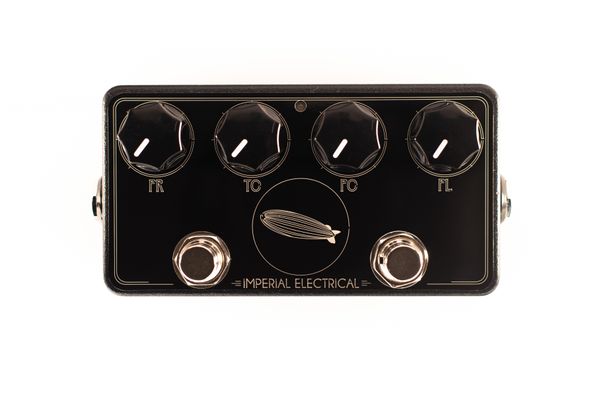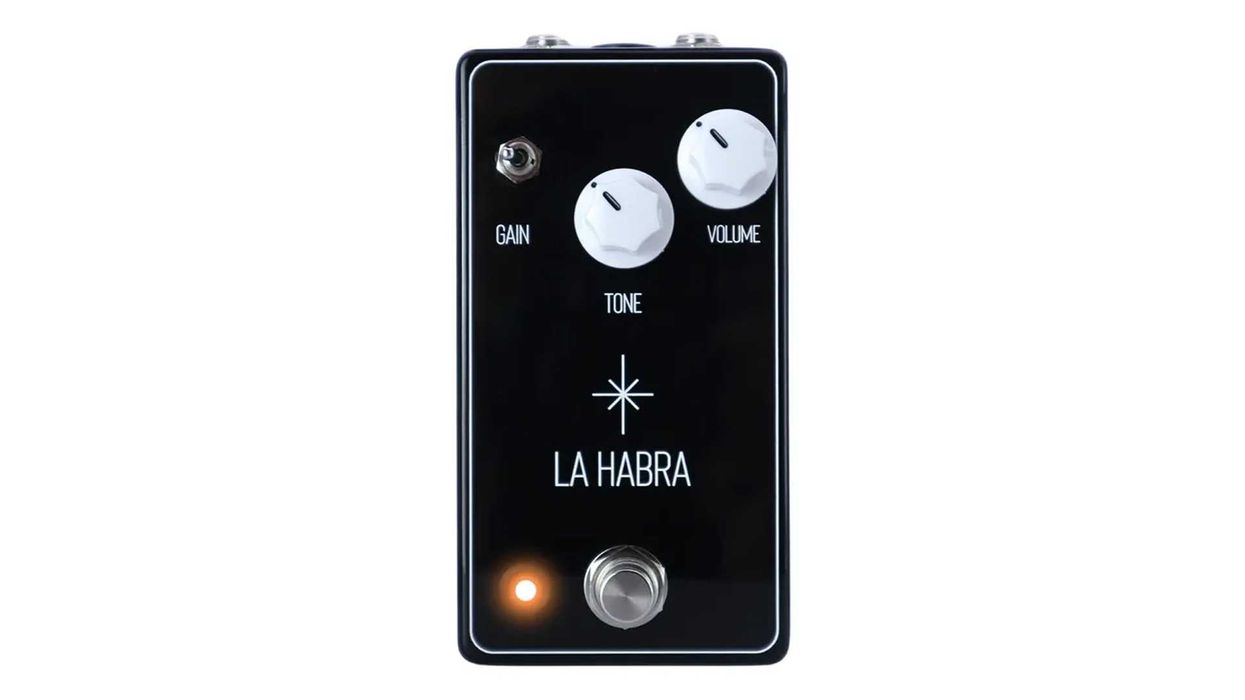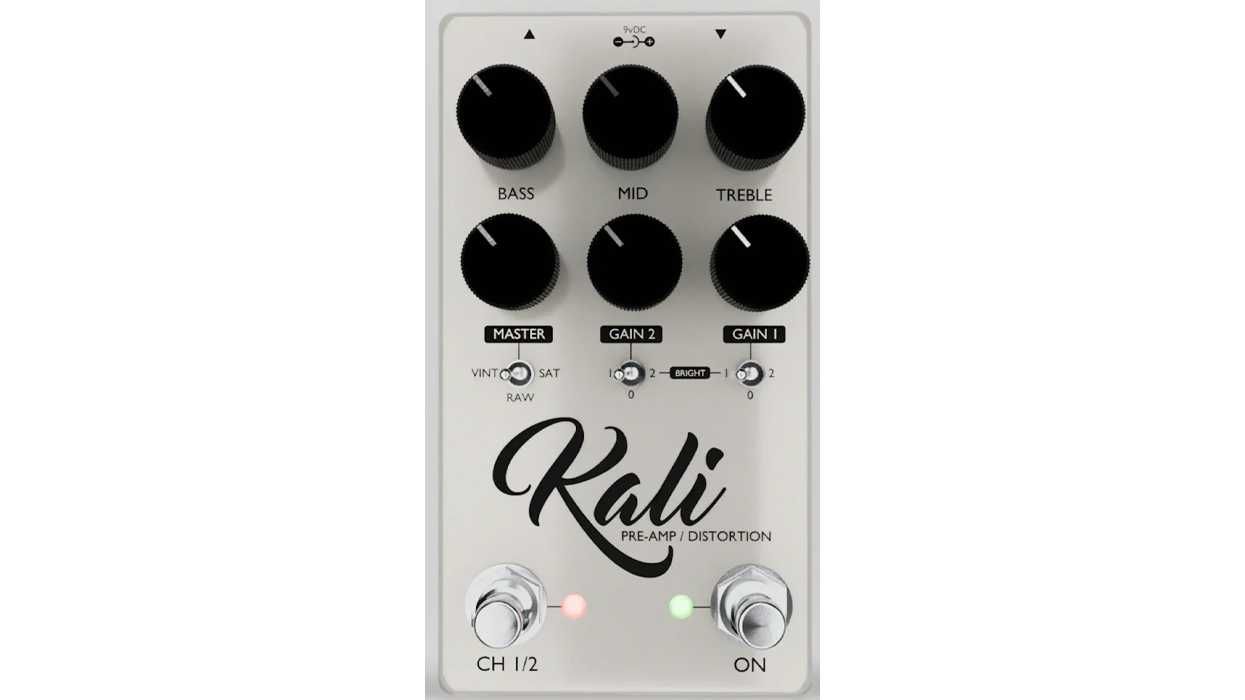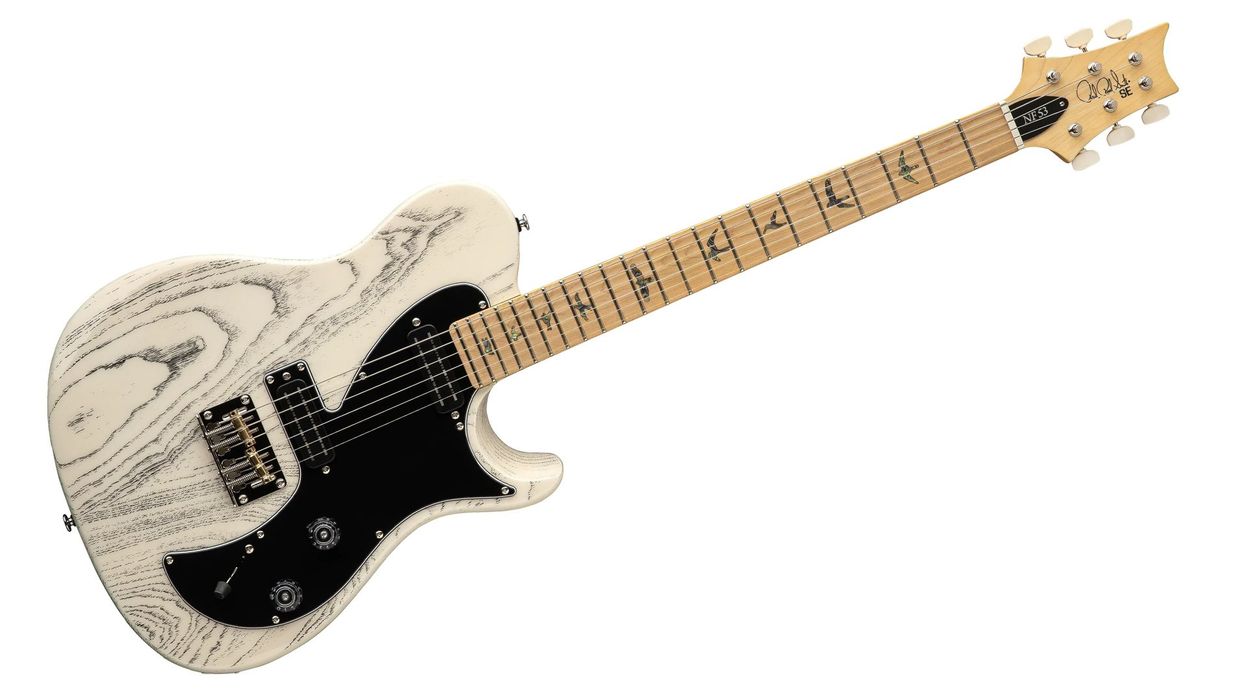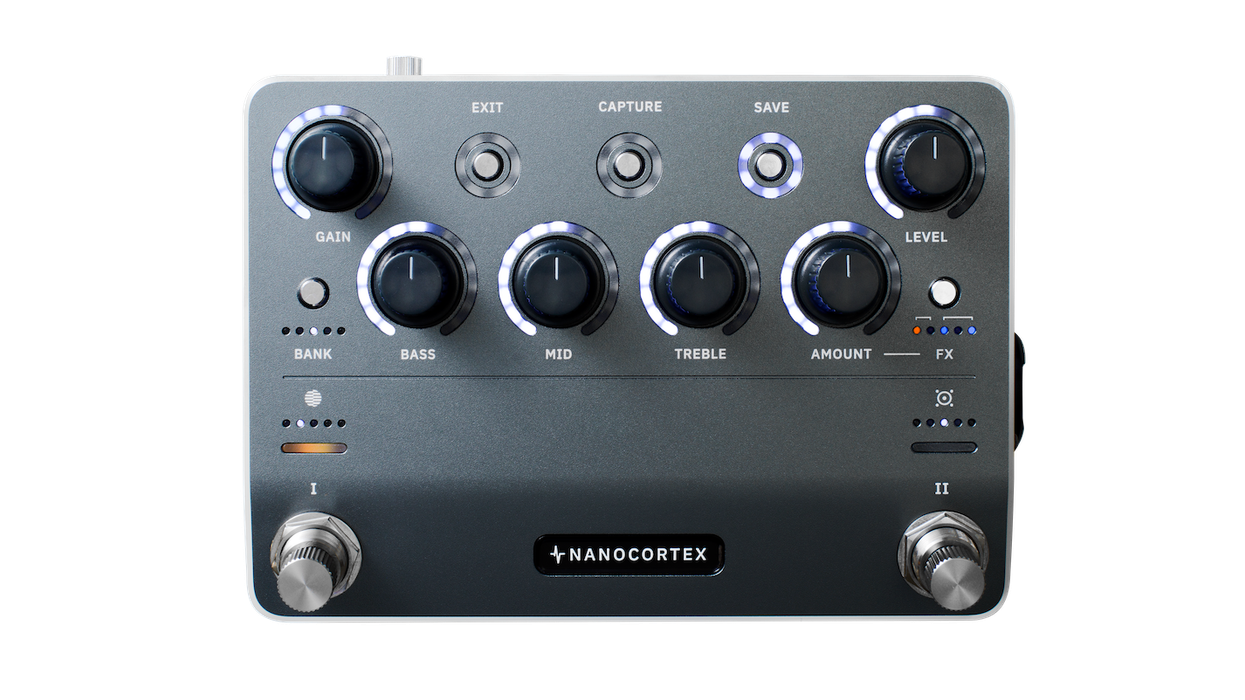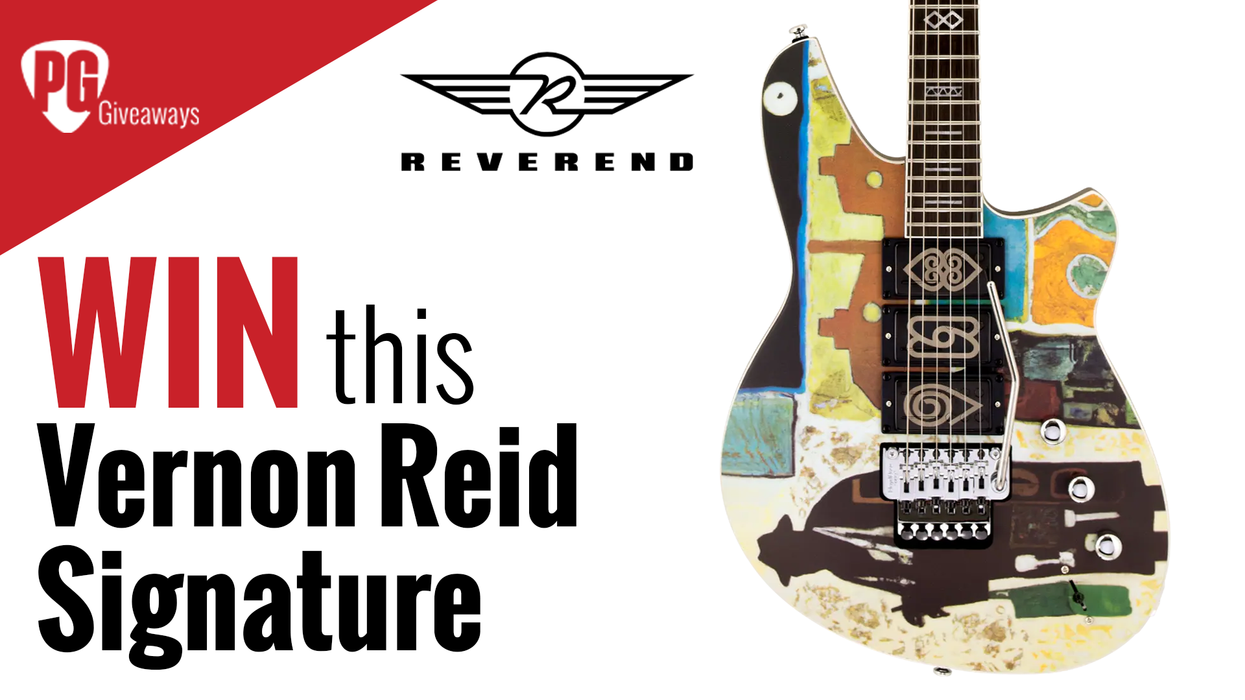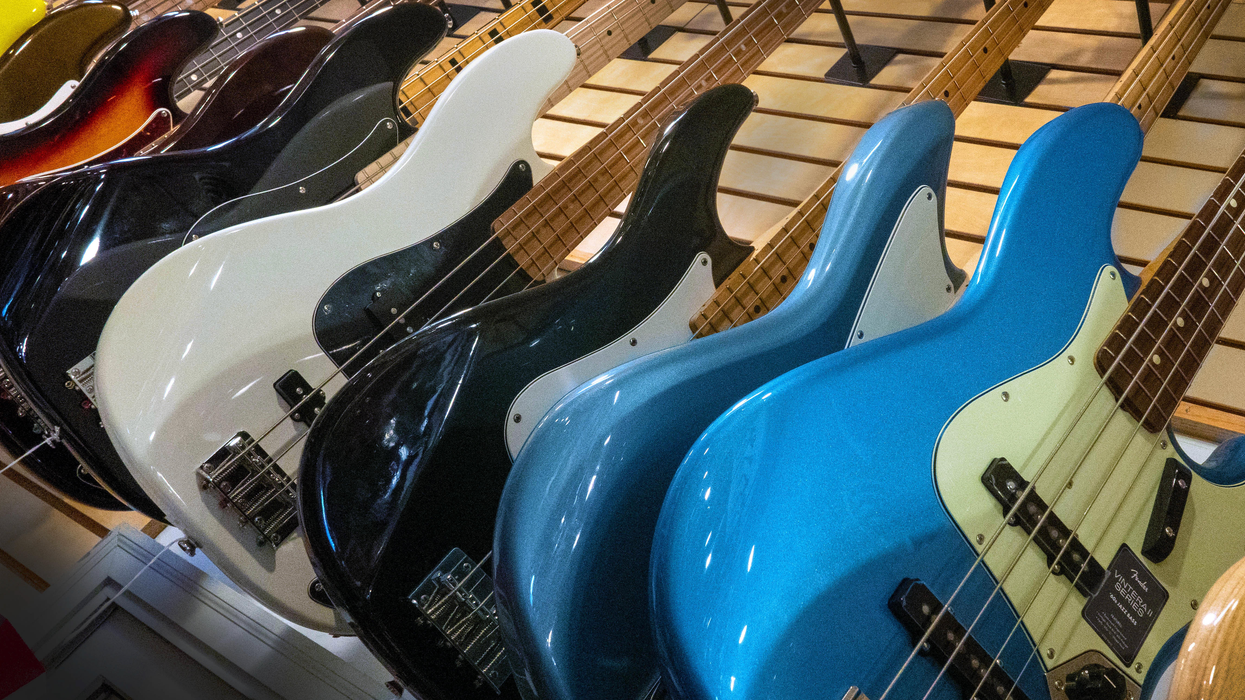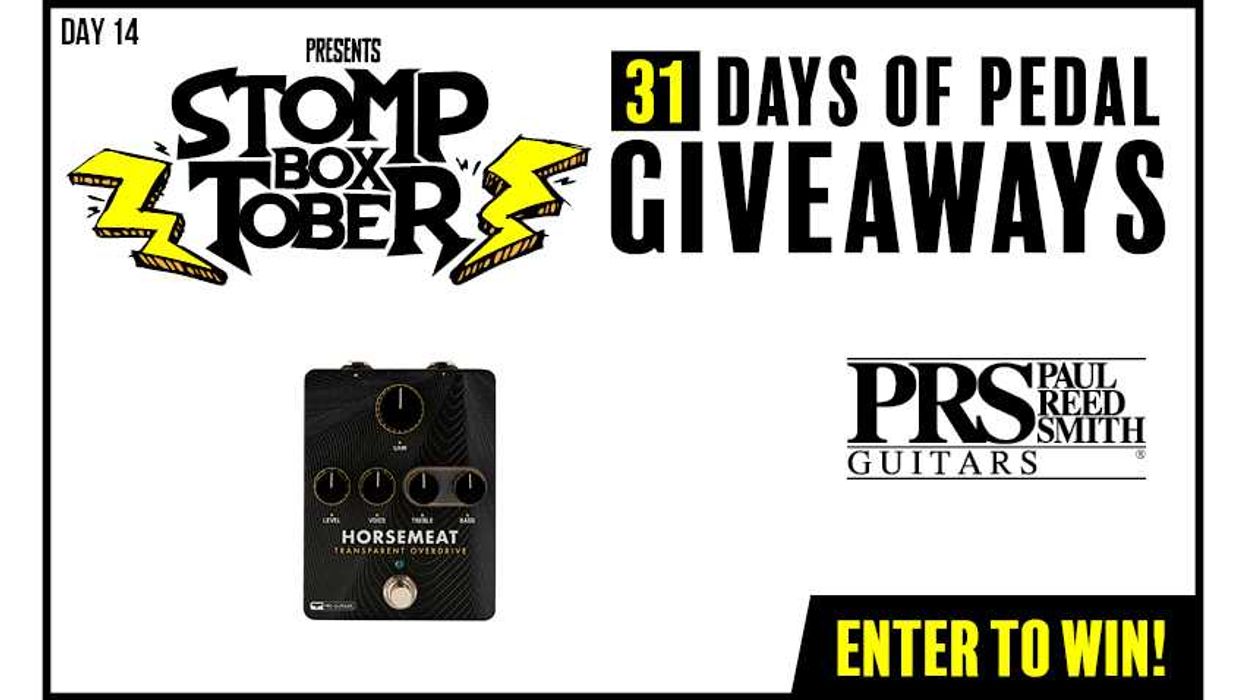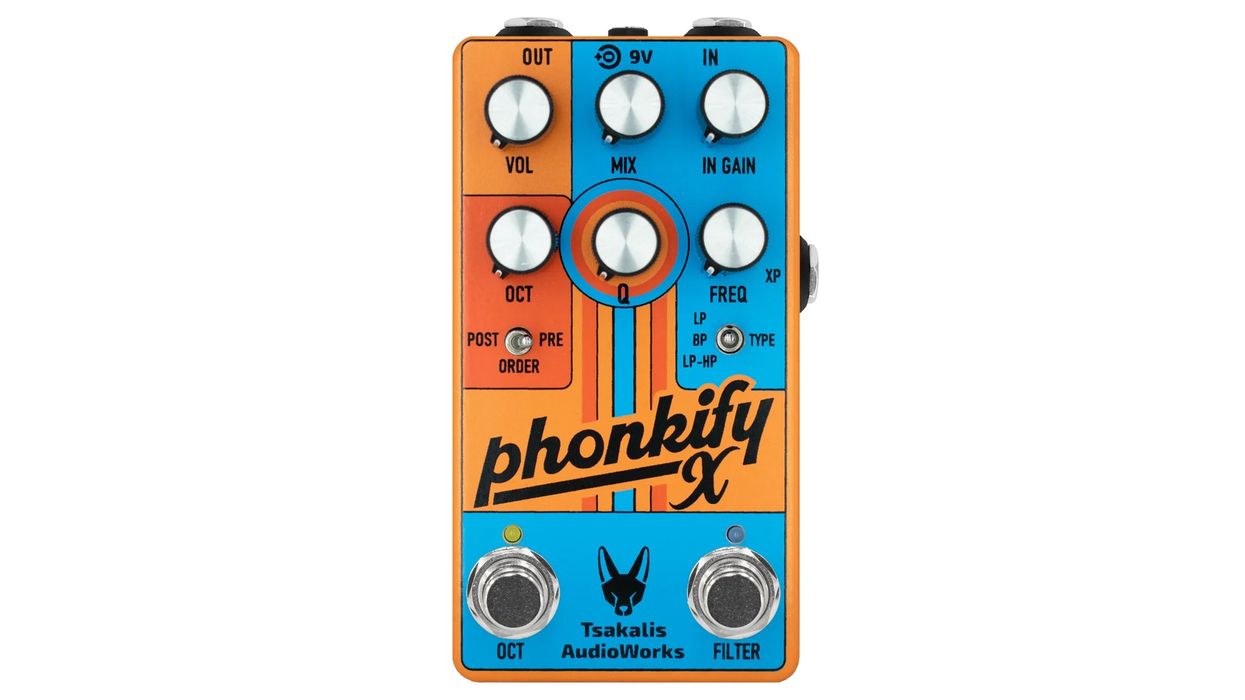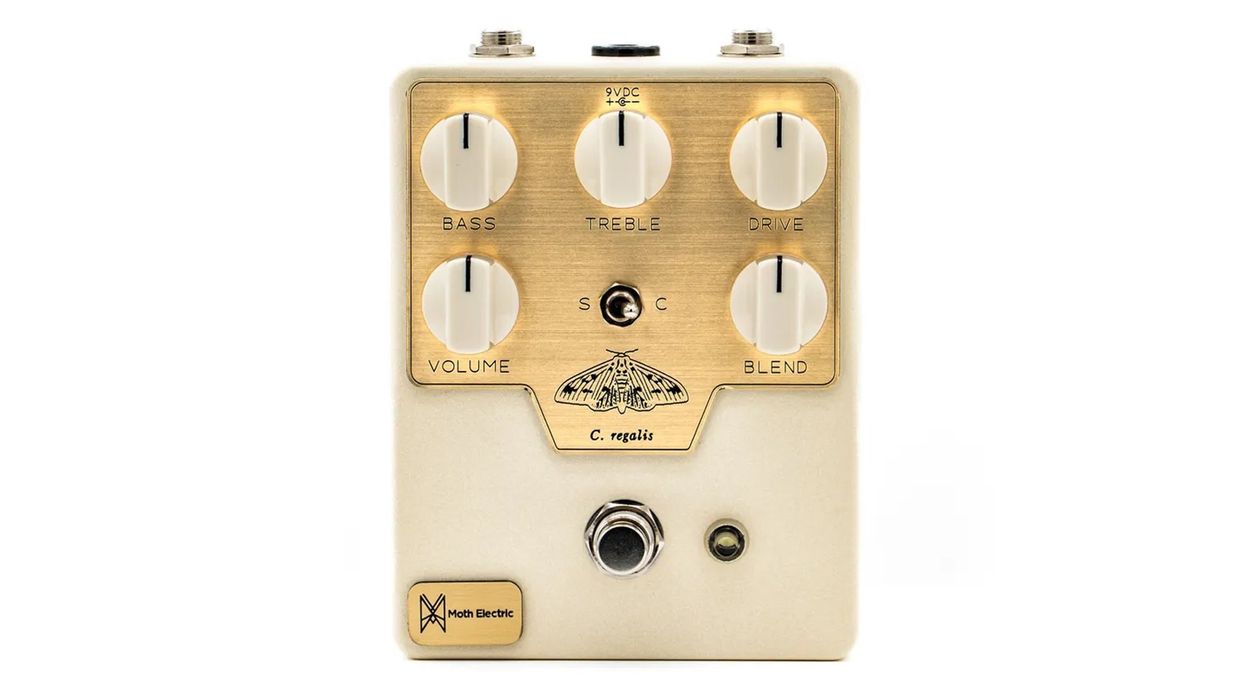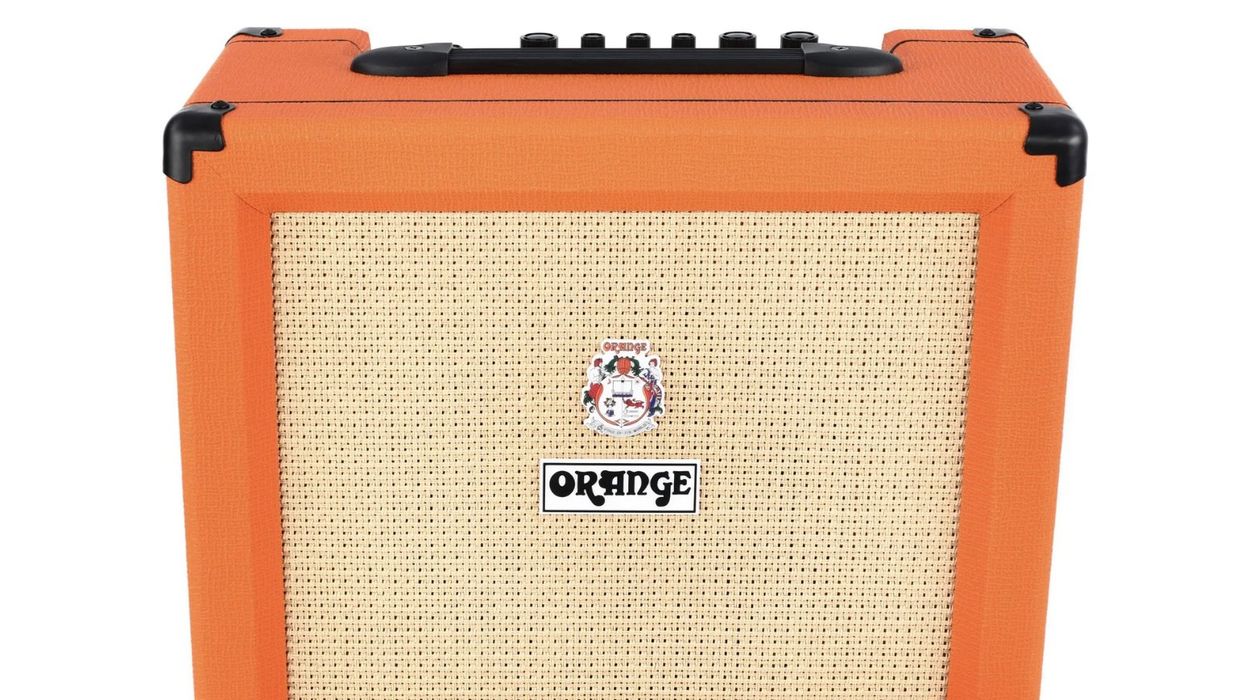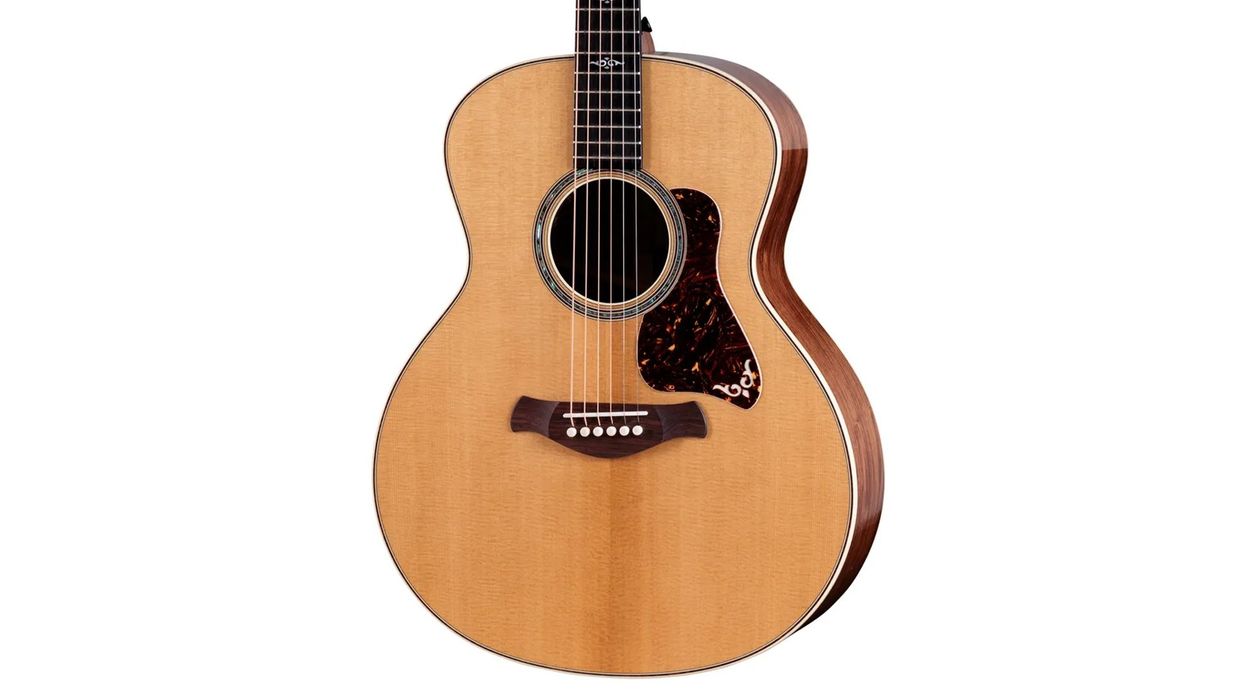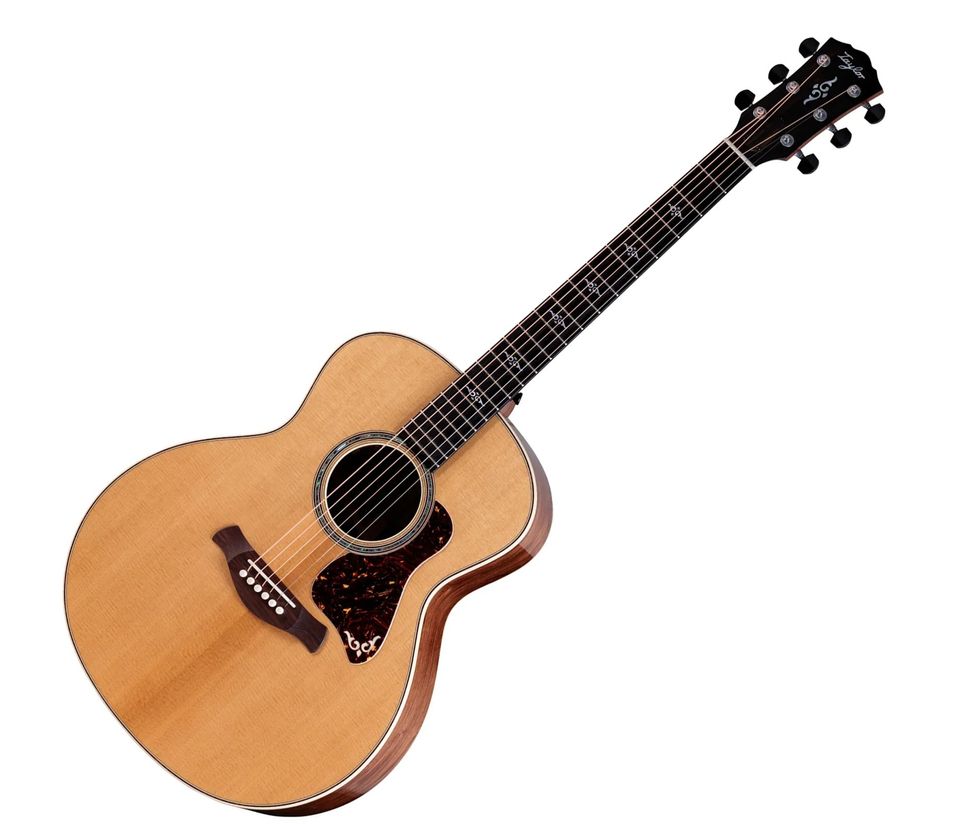The new Zeppelin preamp and overdrive by Imperial Electrical is an enthusiastically executed and thoughtful attempt at achieving Jimmy Page’s tones in an effects pedal—no mean feat if you can pull it off. In general, it does its Pagey magick by approximating the function of an Echoplex-style preamp and amp-style overdrive in a single box. Simple as that may sound, it gives the player a bundle of gain-staging capabilities.
Lead Balloon Takes Flight
The Zeppelin—like much about the band that inspired it—isn’t immediately easy to decipher. Two-letter acronyms beneath each knob are rendered in Zep’-inspired Art nouveau fonts. The knob to the far right labeled PL controls the gain of the Echoplex preamp, which is essentially a pre-overdrive boost. The right-side footswitch engages this circuit independently of the overdrive. The next three knobs from right to left are PO (plexi output), TO (tone), and PR (preamp, or plexi drive/gain control). The left footswitch engages this section. The status LED at the top-center glows red when the plexi side alone is on, green when the Echoplex alone is on, and orange when they’re running together. Coded control legends aside, it is a practical, streamlined array. And though the compact dimensions might be the cause of an occasional stomp on the wrong switch, most will find that risk a small price to pay to get this much effective gain staging into so little space.
Interestingly, though, it does nail the throaty, thick, midrange overdrive tone achieved by pushing a Valco-made Supro amp into distortion.
Unsurprisingly, perhaps, the printed circuit board fills the whole of the enclosure, with nary enough room to squeeze a gnat in around the edges. That also means there’s no space for a 9V battery, so it’s adaptors only for the Zeppelin.
Hammer Falls
The Zeppelin’s big, ’70s-inspired, arena-rock-grade rhythm and lead tones are heavy, gutsy stuff. The overdrive side arguably sounds best with its PR (gain) control in the 11 o’clock to 1 o’clock range, where it generates low-to medium-gain overdrive sounds with a lot of body and clarity. Turning up the gain from there makes the tone denser and more saturated. But it can also sound a little bit raspy and guttural, and some note separation goes missing when this control is maxed out. This sound can be a lot of fun, but it’s a gnarly, heavy voice, for sure.
Although billed as a plexi-style overdrive, the Marshall-inspired side of the pedal doesn’t sound especially Marshall-y to my ears. Interestingly, though, it does nail the throaty, thick, midrange overdrive tone achieved by pushing a Valco-made Supro amp into distortion, which is, of course, the type of amp Jimmy Page used to create the sounds of Led Zeppelin I. Regardless of my perceptions, the result is substantial and grittily Page-like.
The Echoplex side of the pedal works really well, and the pedal often sounds best with a little of this pre-OD boost added to the overdrive. Modest-to-judicious overdrive levels respond highly to a bit of kick from the boost. And they rarely yield mud. Instead, the combination tends to add sweet saturation to the overall tone.
In classic Page style, I experimented with a Les Paul and Telecaster as drivers for the Zeppelin. The Telecaster’s single-coils were the best pairing when I wanted to highlight the eviscerating clarity in the Zeppelin’s overdrive tones. But, as you’d expect, there’s still a sharp edge to the tones you get from a Les Paul, and the Zeppelin is more than articulate enough to keep the fatter guitar distinct at reasonable gain settings.
The Verdict
The Zeppelin takes a creative approach to replicating Jimmy Page’s early Led Zeppelin tone recipes. It packs both a thick '70s arena-rock-inspired overdrive and a very agreeable preamp boost into one compact, well-made box. And though my ears hear the overdrive as more Supro than Marshall-plexi-like, the Zeppelin’s voice is no less enjoyable, practical, or Page-like.
